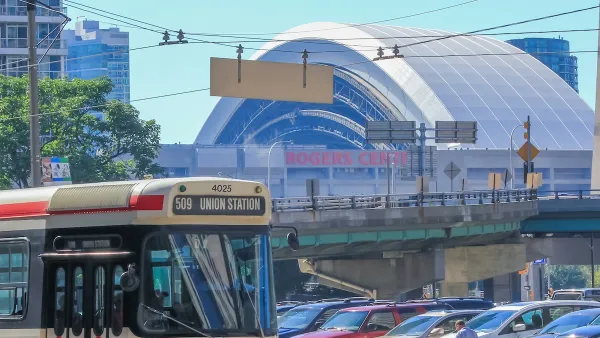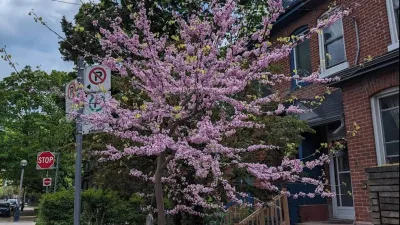The revitalization of Toronto's waterfront has been a remarkable success, generating billions in economic development and thousands of jobs. As Waterfront Toronto's seed money runs out, why is the agency facing obstacles in raising more funds?
"As investments go, Toronto’s waterfront has turned out to be one of the best," says Christopher Hume. "Starting in 2001 with $1.5 billion of public finding and 810 hectares of prime lakeside real estate, Waterfront Toronto has since signed private-sector deals worth $2.6 billion and created 16,000 full-time years of employment."
"Having spent $1.26 billion of its seed money, the agency will soon run out of cash," notes Hume. "That makes it a matter of some urgency."
"Waterfront Toronto’s success comes at an auspicious moment for the city. Given Mayor Rob Ford’s often repeated disapproval of government spending, it’s important to remember that public sector investment can pay off handsomely."
FULL STORY: Waterfront Toronto pumps billions into economy and now needs power to raise revenue: Hume

Maui's Vacation Rental Debate Turns Ugly
Verbal attacks, misinformation campaigns and fistfights plague a high-stakes debate to convert thousands of vacation rentals into long-term housing.

Planetizen Federal Action Tracker
A weekly monitor of how Trump’s orders and actions are impacting planners and planning in America.

In Urban Planning, AI Prompting Could be the New Design Thinking
Creativity has long been key to great urban design. What if we see AI as our new creative partner?

King County Supportive Housing Program Offers Hope for Unhoused Residents
The county is taking a ‘Housing First’ approach that prioritizes getting people into housing, then offering wraparound supportive services.

Researchers Use AI to Get Clearer Picture of US Housing
Analysts are using artificial intelligence to supercharge their research by allowing them to comb through data faster. Though these AI tools can be error prone, they save time and housing researchers are optimistic about the future.

Making Shared Micromobility More Inclusive
Cities and shared mobility system operators can do more to include people with disabilities in planning and operations, per a new report.
Urban Design for Planners 1: Software Tools
This six-course series explores essential urban design concepts using open source software and equips planners with the tools they need to participate fully in the urban design process.
Planning for Universal Design
Learn the tools for implementing Universal Design in planning regulations.
planning NEXT
Appalachian Highlands Housing Partners
Mpact (founded as Rail~Volution)
City of Camden Redevelopment Agency
City of Astoria
City of Portland
City of Laramie





























